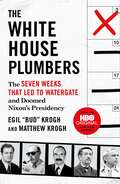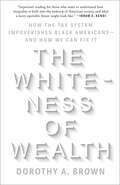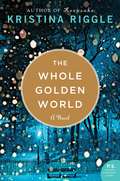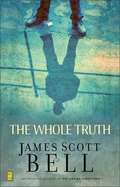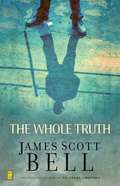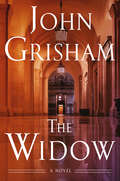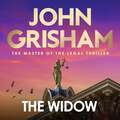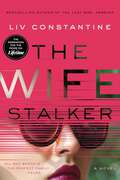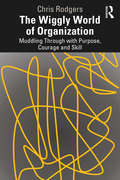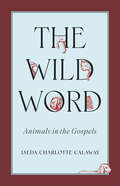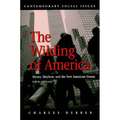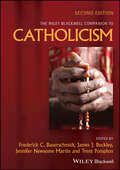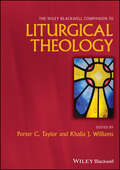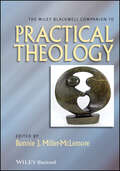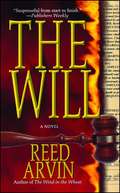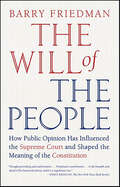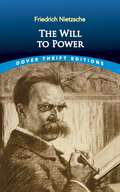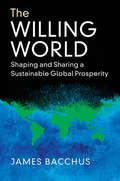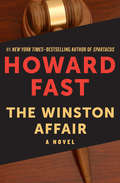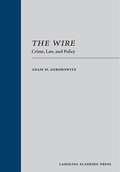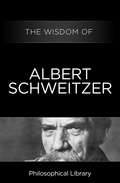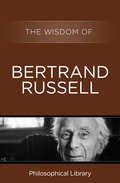- Table View
- List View
The White House Plumbers: The Seven Weeks That Led to Watergate and Doomed Nixon's Presidency
by Matthew Krogh Egil "Bud" KroghSOON TO BE A FIVE-PART HBO SERIES, STARRING WOODY HARRELSON AND JUSTIN THEROUXThe true story of The White House Plumbers, a secret unit inside Nixon's White House, and their ill-conceived plans stop the leaking of the Pentagon Papers, and how they led to Watergate and the President's demise.On July 17, 1971, Egil “Bud” Krogh was summoned to a closed-door meeting by his mentor—and a key confidant of the president—John Ehrlichman. Expecting to discuss the most recent drug control program launched in Vietnam, Krogh was shocked when Ehrlichman handed him a file and the responsibility for the Special Investigations Unit, or SIU, later to be notoriously known as “The Plumbers.”The Plumbers’ work, according to Nixon, was critical to national security: they were to investigate the leaks of top secret government documents, including the Pentagon Papers, to the press. Driven by blind loyalty, diligence, and dedication, Krogh, along with his co-director, David Young, set out to handle the job, eventually hiring G. Gordon Liddy and E. Howard Hunt, who would lead the break-in to the office of Dr. Fielding, a psychiatrist treating Daniel Ellsberg, the man they suspected was doing the leaking. Krogh had no idea that his decisions would soon lead to one of the most famous conspiracies in presidential history and the demise of the Nixon administration.The White House Plumbers is Krogh’s account of what really happened behind the closed doors of the Nixon White House, and how a good man can make bad decisions, and the redemptive power of integrity. Including the story of how Krogh served time and later rebuilt his life, The White House Plumbers is gripping, thoughtful, and a cautionary tale of placing loyalty over principle.
The Whiteness of Wealth: How the Tax System Impoverishes Black Americans--and How We Can Fix It
by Dorothy A. BrownA groundbreaking exposé of racism in the American taxation system from a law professor and expert on tax policy&“Important reading for those who want to understand how inequality is built into the bedrock of American society, and what a more equitable future might look like.&”—Ibram X. Kendi, #1 New York Times bestselling author of How to Be an AntiracistDorothy A. Brown became a tax lawyer to get away from race. As a young black girl growing up in the South Bronx, she&’d seen how racism limited the lives of her family and neighbors. Her law school classes offered a refreshing contrast: Tax law was about numbers, and the only color that mattered was green. But when Brown sat down to prepare tax returns for her parents, she found something strange: James and Dottie Brown, a plumber and a nurse, seemed to be paying an unusually high percentage of their income in taxes. When Brown became a law professor, she set out to understand why.In The Whiteness of Wealth, Brown draws on decades of cross-disciplinary research to show that tax law isn&’t as color-blind as she&’d once believed. She takes us into her adopted city of Atlanta, introducing us to families across the economic spectrum whose stories demonstrate how American tax law rewards the preferences and practices of white people while pushing black people further behind. From attending college to getting married to buying a home, black Americans find themselves at a financial disadvantage compared to their white peers. The results are an ever-increasing wealth gap and more black families shut out of the American dream.Solving the problem will require a wholesale rethinking of America&’s tax code. But it will also require both black and white Americans to make different choices. This urgent, actionable book points the way forward.
The Whole Golden World
by Kristina RingstromKristina Riggle, the acclaimed author of Real Life & Liars, returns with a thought-provoking novel inspired by real-life eventsSeventeen-year-old Morgan Monetti shocks her parents and her community with one simple act: She chooses to stand by the man everyone else believes has exploited her--popular high school teacher TJ Hill. Quietly walking across a crowded courtroom to sit behind TJ, and not beside her parents, she announces herself as the adult she believes herself to be. But her mother, Dinah, wants justice. Dinah is a fighter, and she believes with all her heart and soul that TJ is a man who took advantage of her daughter. He is a criminal who should be brought to justice, no matter what the cost to his family. Rain, TJ's wife, is shocked that her handsome, loving, respected husband has been accused of a terrible crime. But has her desperation to start a family closed her eyes to the fault lines in her marriage? And can she face the painful truths about herself and her husband?Told from the perspectives of these three remarkable women, The Whole Golden World navigates the precarious territory between childhood and adulthood, raising questions about love and manipulation, marriage and motherhood, consent and responsibility. It's a novel both shocking and unforgettable in its power.
The Whole Truth
by James S. BellBack Cover Attorney Steve Conroy has one last chance to overcome the past that has haunted him for twenty-five years. But he'll learn that the present can be darker than any nightmare he's ever had. At the age of five, Steve Conroy saw his seven-year-Old brother kidnapped from the very bedroom they shared. His brother was never found. And the guilt of his silence that night had all but destroyed him. Now thirty Years old with a failing law practice,Steve agrees to represent a convicted criminal, Johnny laSalle, who has ties to a notorious family. And some information that threatens to blow Steve's world apart. Desperate for his final shot at professional success, Steve will do anything to find the truth. But Johnny knows far more than he's telling and the secrets he keeps have deadly consequences. Now Steve must depend on an EX-Criminal law student whose faith appears to be his last chance at redemption from a corrupt world where one wrong move could be his last.
The Whole Truth
by James Scott BellAt the age of five, Steve Conroy saw his seven-year-old brother kidnapped from the very bedroom they shared. Now thirty years old with a failing law practice, Steve's last chance to overcome his past just might come from a convicted criminal. But can Steve get the truth he needs from this con man?
The Widow: A Novel
by John Grisham#1 NEW YORK TIMES BESTSELLER • John Grisham is the acclaimed master of the legal thriller. Now, he&’s back with his first-ever whodunit, even more suspenseful than his courtroom dramas, as a small-time lawyer accused of murder races to find the real killer to clear his name.&“A classic, compulsive, taut and thrilling novel from one of the great storytellers of our time. The Widow is John Grisham at his irresistible, unforgettable best.&”—Chris Whitaker, author of All the Colors of the DarkSimon Latch is a lawyer in rural Virginia, making just enough to pay his bills while his marriage slowly falls apart. Then into his office walks Eleanor Barnett, an elderly widow in need of a new will. Apparently, her husband left her a small fortune, and no one knows about it.Once he hooks the richest client of his career, Simon works quietly to keep her wealth under the radar. But soon her story begins to crack. When she is hospitalized after a car accident, Simon realizes that nothing is as it seems, and he finds himself on trial for a crime he swears he didn&’t commit: murder.Simon knows he&’s innocent. But he also knows the circumstantial evidence is against him, and he could spend the rest of his life behind bars. To save himself, he must find the real killer….
The Widow: the unforgettable new courtroom drama from the master of the legal thriller!
by John Grisham'A classic, compulsive, taut and thrilling novel from one of the great storytellers of our time. No one does it better' CHRIS WHITAKERSHE NEEDS A LAWYER. HE NEEDS A PAYDAY.Lawyer Simon Latch is struggling with debt, gambling issues and an impending divorce. But when Eleanor Barnett, an 85-year-old widow, visits his office to secure a new will, it seems his luck has finally changed: she claims she's sitting on a $20 million fortune and no one else knows about it.Once he's hooked the richest client of his career, Simon works quietly to keep her wealth under the radar. But it's a terrible mistake. Hidden secrets have a way of being found out, and when Eleanor is hospitalised after a car accident, Simon realises that nothing is as it seems.As events spiral out of control, he finds himself on trial for a crime he swears he didn't commit: murder. The Widow is classic Grisham courtroom drama combined with a confounding murder mystery that will enthral his legion of fans.
The Wife Stalker: A Novel
by Liv ConstantineSoon to be an original movie on Lifetime, premiering March 29!The bestselling author of The Last Mrs. Parrish—a Reese Witherspoon Book Club pick—returns with a psychological thriller, filled with chilling serpentine twists, about a woman fighting to hold onto the only family she’s ever loved—and how far she’ll go to preserve it.Named one of the most anticipated thrillers of the year by Goodreads, Bustle, SheReads, and Library Journal; A LibraryReads pick of the month Breezing into the upscale seaside paradise of Westport, Connecticut, gorgeous thirtysomething Piper Reynard sets down roots, opening a rehab and wellness space and joining a local yacht club. When she meets Leo Drakos, a handsome, successful lawyer, the wedding ring on his finger is the only thing she doesn’t like about him. Yet as Piper well knows, no marriage is permanent.Meanwhile, Joanna has been waiting patiently for Leo, the charismatic man she fell in love with all those years ago, to re-emerge from the severe depression that has engulfed him. Though she’s thankful when Leo returns to his charming, energetic self, paying attention again to Evie and Stelli, the children they both love beyond measure, Joanna is shocked to discover that it’s not her loving support that’s sparked his renewed happiness—it’s something else.Piper. Leo has fallen head over heels for the flaky, New Age-y newcomer, and unrepentant and resolute, he’s more than willing to leave Joanna behind, along with everything they’ve built. Of course, he assures her, she can still see the children.Joanna is devastated—and determined to find something, anything, to use against this woman who has stolen her life and her true love. As she digs deeper into Piper’s past, Joanna begins to unearth disturbing secrets . . . but when she confides to her therapist that she fears for the lives of her ex-husband and children, her concerns are dismissed as paranoia. Can she find the proof she needs in time to save them?
The Wiggly World of Organization: Muddling Through with Purpose, Courage and Skill
by Chris RodgersThe well-ordered, fully aligned view of organization and management practice, with its unfailingly positive results, bears little relationship to the world that managers and others experience every day. This straight-line, ‘do this and you’ll get that’ idealization is far removed from the wiggly reality. Despite this, the former continues to dominate the ways in which management is spoken about and judged in formal organizational arenas and wider society. This creates unrealistic expectations of what managers (from CEO to the front line) can sensibly achieve independently of the actions of others. Crucially, too, it distorts the ways in which they and others account formally for their actions. And so, the fantasy continues. Against this background, the book offers a radically different way of thinking about, and engaging with, the irreducible complexity of organization and management practice. Using straightforward language throughout, it sets out to help managers and others to become consciously aware of what they already know deep down about how organization works and what they – and everyone else – are actually doing in practice. It then offers a practical approach to everyday practice that takes complexity seriously. Armed with these new insights, readers will be better placed to apply their innate understanding and practical judgement to the demands that they and others face day to day. Whether these arise from their roles as managers, other practitioners, policy makers, regulatory authorities, or participants more generally.
The Wild Word: Animals in the Gospels
by Jaeda Charlotte CalawayPlaced in a manger as an infant, Jesus seems to have been born into a world teeming with animal life. Yet read the stories again. Does Mary ride a donkey? Does the centurion ride a horse? Animals are everywhere in the gospels, though not always in the ways we expect. Where animals are visible, their presence means more than we realize.The Wild Word explores the gospels’ well-known, forgotten, and missing portrayals of animals. Jaeda Calaway examines the many interactions between humans and other animals in these biblical texts, first considering forms of consumption, such as eating animals, wearing animal products, working animals, and sacrificing animals. She then turns to symbolic animality: how humans assign animal traits and archetypes to other humans, how divine and demonic powers intersect with wild and domestic animals, and what queer and trans readings of gospel animals can illuminate.Told and retold for two thousand years, the gospel stories are deeply imprinted on Western culture. The Wild Word reveals how many of their associations with animals, animality, and wildness remain with us today.
The Wilding of America: Money, Mayhem, and the New American Dream
by Charles DerberThe American dream champions individualism. But at what price? In the fully updated fifth edition of The Wilding of America, Charles Derber chronicles the latest incidents of "wilding"- acts of self-interested violence or greed that weaken the social fabric. Each chapter of the new edition has been thoroughly revised. New discussions include: an analysis of global corporate power in the wake of the 2008 economic crisis including an in-depth look at factory workers in both Guatemala and South China; an examination of the state of New Orleans in 2009; and a look at the impact of the Obama administration on wilding behavior. In addition, two all new chapters have been added to the Fifth Edition. Chapter 5,Subprime Capitalism, examines the 2008 Wall street collapse including sections on the rise and fall of Bernie Madoff, the workings of the housing market, and the role of the media before and after the collapse. Chapter 9,The Tragedy of the Commons, identifies how wilding behavior threatens the building blocks of a good society. This chapter specifically examines the effects of wilding on our public space, social infrastructure, and natural environment.
The Wiley Blackwell Companion to Catholicism (Wiley Blackwell Companions to Religion)
by James J. Buckley Frederick C. Bauerschmidt Trent Pomplun Jennifer Newsome MartinProvides a broad and deep survey of Roman Catholic life and thought, updated and expanded throughout The Wiley Blackwell Companion to Catholicism provides an authoritative overview of the history, doctrine, practices, and expansion of Catholicism. Written by a group of distinguished scholars, this comprehensive reference work offers an illuminating account of the global, historical, and cultural phenomena of Catholicism. Accessible chapters address central topics in the practice of Catholic theology and the development of doctrine, including God and Jesus Christ, creation and Church, the Virgin Mary, the sacraments, moral theology, eschatology, and more. Throughout the text, the authors illustrate the unity and diversity of Catholic life and thought while highlighting the ways Catholicism overlaps with, and transforms, other ways of living and thinking. Now in its second edition, The Wiley Blackwell Companion to Catholicism is fully updated to include recent developments in the study of Catholicism. Extensively revised and expanded chapters, many of which written by new authors, address contemporary issues such as theology and politics, environmentalism, and the clerical sexual abuse crisis. Entirely new chapters cover the early modern Church, the Bible in Catholic theology, the Eastern Catholic churches, liturgy, care for creation, the consecrated life, challenges for the Catholic Church, and more. An informed and engaging intellectual journey through the past and present of Roman Catholicism, The Wiley Blackwell Companion to Catholicism: Illustrates the diversity of modern Catholic life and thought Describes Catholics in different lands, including the Holy Land, India, Africa, Europe, the British Isles, Asia, Oceania, and the Americas Surveys spirituality and ecumenism, inter-religious dialog, Catholic schools and hospitals, art and the sciences, the Holy See, and other central Catholic institutions and practices Covers major eras in Catholic history, from the Scriptures and the early Church to Post-Modernity Features new material on diverse practices of Catholicism across cultures, the global dimensions of the Catholic Church, race and ethnicity, and Eastern Catholic ChurchesThe Wiley Blackwell Companion to Catholicism, Second Edition, is the ideal textbook for surveys classes on Catholicism and Catholic theology in Catholic, Protestant, and non-confessional colleges and universities. It is also an invaluable resource for scholars and general readers interested in broadening their knowledge of Catholicism.
The Wiley Blackwell Companion to Liturgical Theology (Wiley Blackwell Companions to Religion)
by Khalia J. Williams Porter C. TaylorThe first research-based volume of its kind, The Wiley Blackwell Companion to Liturgical Theology is an unprecedented collection of original essays on the meaning, depth, and breadth of liturgical theology. Designed for students, scholars, and practitioners alike, this comprehensive resource situates liturgical theology within the wider scheme of theological inquiry to present an expansive and interdisciplinary overview of the rapidly growing field. Contributions by established and emerging scholars examine liturgical theology’s historical development, methodologies, key literature, and future directions. Both an introduction to the field and a starting point for further research, the Companion covers all essential aspects of liturgical theology, ranging from foundational topics such as liturgical ecclesiology, hermeneutics, linguistics, and sacramental services to emerging scholarship in womanist liturgical theology, traumatic liturgy, and liberation theology. Bringing together essays by a diverse and balanced panel of scholars representing more than a dozen denominations, The Wiley Blackwell Companion to Liturgical Theology is the ideal text for seminary and college courses on liturgical theology, the history of worship, and practical theology, and a must-read for theologians of all disciplines.
The Wiley Blackwell Companion to Practical Theology
by Bonnie J. Miller-McLemoreThrough a series of essays contributed by leading experts in the field, The Wiley-Blackwell Companion to Practical Theology presents an introduction to practical theology as a major area of Christian study and practice, including an overview of its key developments, themes, methods, and future directions. The first comprehensive reference work to provide a survey, description and analysis of practical theology as an area of studyA range of leading scholars in the field provide original contributions on the major areas, issues, and figures in practical theologyReviews an extensive range of methods for studying theology in practice, along with sub-disciplines in theological education such as pastoral care and preachingCovers developments in the discipline in a range of global contexts and distinct Christian traditionsShows how practical theology is relevant to everyday life
The Will
by Reed ArvinWhat lengths would someone go to bury a secret? What lengths would someone go to uncover one? Henry Mathews, a young, ambitious associate at one of the top law firms in Chicago, is a man on the move. As lethal in a courtroom as a shark in an aquarium, he is rising fast. But his hard-driving mentor, the senior partner, is obsessed with a telling inconsistency on Henry's otherwise brilliant résumé: the year after he graduated from college, Henry enrolled at a seminary in Kentucky. Even more perplexing, Henry left suddenly three weeks before the end of the first year, and won't speak of the episode. But Henry's past refuses to go away. Called back to his tiny hometown in Council Grove, Kansas, to execute the will of Tyler Crandall, the town's richest man, Henry gets enmeshed in a web of long-hidden secrets. Tyler has chosen not to leave his wealth to his grasping son, but instead has made a homeless derelict called the Birdman a sudden millionaire and Council Grove's most powerful resident. The Birdman, scripture-spouting and delusional, prophesies a dark vision of retribution and hellfire. But soon it becomes clear that locked behind his madness is the key to the real history of Council Grove. When a grotesque and cruel act convinces Henry that powerful forces will do anything to keep those secrets hidden, he determines to protect the Birdman and uncover the truth. But the cost is high: Henry is in danger of losing both his job in Chicago and his beautiful, ambitious girlfriend. Henry, given the opportunity to use his phenomenal legal skills for good, discovers that right and wrong are more complex than he imagined. Sucked into secrets of money, politics, and a tragic love affair -- secrets with the power to ruin lives -- Henry finds his own sense of morality under assault. As black and white turn to gray, what began as a legal battle becomes a spiritual journey stretching back to Henry's mysterious experience at the seminary. More than just a legal thriller, The Will is an absorbing, deeply satisfying read.
The Will of the People: How Public Opinion Has Influenced the Supreme Court and Shaped the Meaning of the Constitution
by Barry FriedmanIn recent years, the justices of the Supreme Court have ruled definitively on such issues as abortion, school prayer, and military tribunals in the war on terror. They decided one of American history's most contested presidential elections. Yet for all their power, the justices never face election and hold their offices for life. This combination of influence and apparent unaccountability has led many to complain that there is something illegitimate—even undemocratic—about judicial authority.In The Will of the People, Barry Friedman challenges that claim by showing that the Court has always been subject to a higher power: the American public. Judicial positions have been abolished, the justices' jurisdiction has been stripped, the Court has been packed, and unpopular decisions have been defied. For at least the past sixty years, the justices have made sure that their decisions do not stray too far from public opinion.Friedman's pathbreaking account of the relationship between popular opinion and the Supreme Court—from the Declaration of Independence to the end of the Rehnquist court in 2005—details how the American people came to accept their most controversial institution and shaped the meaning of the Constitution.
The Will to Power: An Attempted Transvaluation Of All Values V1 (Dover Thrift Editions)
by Friedrich NietzscheThroughout his career, Friedrich Wilhelm Nietzsche explored the concept of the will to power, interpreting it variously as a psychological, biological, and metaphysical principle. This posthumously produced volume, drawn from his unpublished notebooks, collects the nineteenth-century philosopher's thoughts on the force that drives humans toward achievement, dominance, and creative activity. Misunderstandings of Nietzsche's previous works compelled the author to attempt to express his doctrines in a more unequivocal form. These writings elucidate the principle that he held to be the essential factor of all existence — the drive and energy to develop independently according to one's nature, rather than being dominated by outside forces. A work that both illuminates and extends our understanding of Nietzsche's earlier books, this volume offers reflections on art, morality, Christianity, nihilism, and other topics that provide absorbing glimpses into the mind of one of philosophy's great thinkers.
The Willing World: Shaping and Sharing a Sustainable Global Prosperity
by James BacchusIn this time of unwillingness, the right kinds of global solutions are needed now more than ever. Climate change is here and intensifying. Anxieties over economic globalization grip many in the fear of change. While these fearful have turned inward into unwillingness, the world's willing are working harder than ever for international and other cooperative solutions. James Bacchus explains why most of the solutions we need must be found in local and regional partnerships of the willing that can be scaled up and linked up worldwide. This can only be achieved within new and enhanced enabling frameworks of global and other international rules that are upheld through the international rule of law. To succeed, these rules and frameworks must for the first time see and treat economy and environment as one. The Willing World explains how best we can build the right legal structure to attain our global goals - and summon and inspire the willingness needed to do it.
The Winds of Sonoma (Regalo Grande Series, #1)
by Nikki AranaAngelica Amante, a New York lawyer, faces the most important choice of her career. Should she side with her firm and sanction the exploitation of illegal immigrants or stand against injustice? When she meets Antonio Perez, son of a poverty-stricken Mexican family, her compassion for the poor grows. Will she follow her ambition---or her heart?
The Winston Affair: A Novel
by Howard FastDuring the Second World War, a military lawyer is embroiled in the toughest case of his career when he must defend a fellow murderous officerIn the midst of World War II, Captain Barney Adams&’s superiors call on him with a very unusual request. A troubled US army lieutenant has confessed to murdering a British officer, and Captain Adams has been assigned as his defense attorney. Military court officials want the cleanest possible trial for the lieutenant, and they believe that Captain Adams, a war hero and distinguished lawyer, is the best man for the job. But when Adams begins to investigate the murder, he finds that this seemingly open-and-shut case is actually much more complicated. Before long he is absorbed in a dramatic struggle for a fair trial against the most overwhelming odds. Thrilling and thought-provoking, The Winston Affair is a powerful portrait of a man torn between the wishes of his superiors and the call for justice. This ebook features an illustrated biography of Howard Fast including rare photos from the author&’s estate.
The Wire: Crime, Law, and Policy
by Adam M. GershowitzThe HBO series, The Wire, provides a springboard for discussing some of the most pressing criminal justice issues of our time. This book explores the law of wiretapping, drug possession, and sentencing. It considers questions beyond basic law, such as whether the police understand or follow the Supreme Court's search and seizure and confession rules. The book also examines broader questions, such as crime statistic manipulation, drug legalization, prisoner reentry, police brutality, the use of informants, mass imprisonment of African Americans, the distribution of limited criminal justice resources, and the media's influence on policing and public policy.
The Wisdom of Albert Schweitzer (Wisdom)
by The Wisdom SeriesReverence for Life—Albert Schweitzer&’s pivotal philosophyMusician, physician, humanitarian, and philosopher, Albert Schweitzer was a twentieth-century Renaissance man who won the Nobel Peace Prize for his &“Reverence for Life&” philosophy. The Wisdom of Albert Schweitzer explores this core philosophy, which inspired one of the world&’s great humanitarians. While traveling in Africa, Schweitzer recognized that all living creatures have a will to live and believed that through a &“reverence for life&” mankind had an ethical imperative to aid in the welfare of all living things, including the environment. His words have remained an inspiration for generations of humanitarians and environmentalists.
The Wisdom of Albert Schweitzer (Wisdom)
by The Wisdom SeriesReverence for Life—Albert Schweitzer&’s pivotal philosophyMusician, physician, humanitarian, and philosopher, Albert Schweitzer was a twentieth-century Renaissance man who won the Nobel Peace Prize for his &“Reverence for Life&” philosophy. The Wisdom of Albert Schweitzer explores this core philosophy, which inspired one of the world&’s great humanitarians. While traveling in Africa, Schweitzer recognized that all living creatures have a will to live and believed that through a &“reverence for life&” mankind had an ethical imperative to aid in the welfare of all living things, including the environment. His words have remained an inspiration for generations of humanitarians and environmentalists.
The Wisdom of Bertrand Russell (Wisdom)
by The Wisdom SeriesAn A-to-Z compendium of Russell&’s writingOne of the great minds of the twentieth century, Bertrand Russell explored philosophy, mathematics, and a variety of other intellectual, political, historical, and social issues in his lifetime. In this indispensable and easily accessible guide, drawn from his books and essays, readers will find Russell&’s fundamental principles, from objectivity to ontological arguments to logical certainty, in his own words. Russell also explored topics such as war, evil, and the purpose and goal of human existence. Russell&’s intellect transcends time and remains a relevant source of inspiration and thought today.
The Wisdom of Bertrand Russell (Wisdom)
by The Wisdom SeriesAn A-to-Z compendium of Russell&’s writingOne of the great minds of the twentieth century, Bertrand Russell explored philosophy, mathematics, and a variety of other intellectual, political, historical, and social issues in his lifetime. In this indispensable and easily accessible guide, drawn from his books and essays, readers will find Russell&’s fundamental principles, from objectivity to ontological arguments to logical certainty, in his own words. Russell also explored topics such as war, evil, and the purpose and goal of human existence. Russell&’s intellect transcends time and remains a relevant source of inspiration and thought today.
